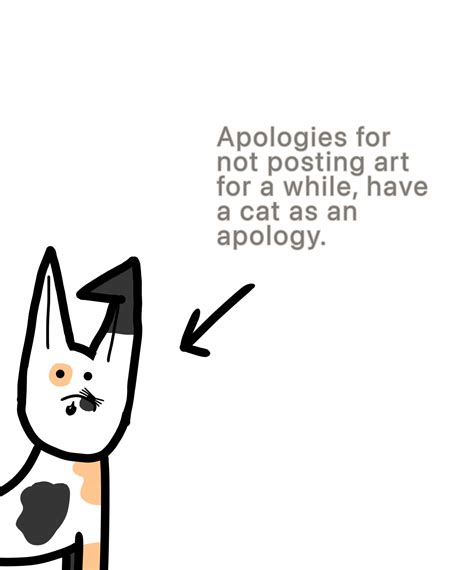
A remorseful Rottweiler has captivated the internet with his exceptionally expressive apology, captured in a viral video showcasing the canine’s seemingly genuine regret. The video, which has amassed millions of views, depicts the large dog using a combination of whimpers, nuzzles, and pleading eyes to atone for an unspecified misdeed, endearing him to viewers worldwide and sparking discussions about animal emotions and communication.
The viral sensation features a Rottweiler named Zeus, owned by TikTok user @zeusthekingrottie. While the exact nature of Zeus’s transgression remains undisclosed, the video’s caption, “When you know you messed up 🥺,” hints at some form of disobedience or mischief. The footage shows Zeus approaching his owner with a demeanor that is markedly different from his usual playful or assertive self. His head is lowered, his tail wags tentatively, and he emits soft whimpering sounds. He then proceeds to gently nudge his owner’s hand with his nose and rests his head on their lap, all while maintaining direct eye contact with a look of apparent contrition.
The video’s comments section is flooded with reactions ranging from amusement to genuine empathy. Many users expressed astonishment at Zeus’s seemingly human-like display of remorse. “That is the most sincere apology I have ever seen,” wrote one commenter. Others shared similar anecdotes about their own pets exhibiting apologetic behavior, contributing to a broader conversation about the emotional capabilities of animals. Experts in animal behavior suggest that while dogs may not experience guilt in the same way as humans, they are highly attuned to their owners’ emotions and can learn to associate certain behaviors with negative consequences. Therefore, Zeus’s actions could be interpreted as an attempt to appease his owner and avoid punishment.
The video’s popularity also highlights the growing trend of pet owners sharing their animal’s lives on social media platforms. TikTok, in particular, has become a hub for animal-related content, with numerous accounts dedicated to showcasing the antics, personalities, and unique behaviors of pets. These videos often resonate with a wide audience, tapping into the universal appeal of animals and their ability to evoke strong emotions.
The Zeus video stands out due to the perceived sincerity of the dog’s apology. Unlike videos that simply feature animals performing tricks or engaging in humorous behaviors, this video portrays a more complex emotional dynamic between a pet and its owner. It raises questions about the extent to which animals are capable of experiencing and expressing emotions such as guilt, remorse, and empathy.
Animal behaviorists emphasize the importance of understanding canine communication. Dogs rely heavily on body language, vocalizations, and contextual cues to convey their feelings and intentions. In Zeus’s case, his lowered head, soft whimpers, and gentle nudges are all indicative of submissive and appeasing behavior. By recognizing these signals, his owner is able to interpret his actions as an apology, even without a verbal explanation.
The viral video has not only entertained millions of viewers but has also sparked a broader discussion about the human-animal bond. It serves as a reminder of the deep connections that can form between people and their pets, and the profound impact that animals can have on our lives.
The overwhelming response to Zeus’s apology further underscores the enduring fascination with animal behavior and the desire to understand the inner lives of our furry companions. As research into animal cognition continues to advance, we are gaining a greater appreciation for the complex emotional and cognitive abilities of animals, challenging long-held assumptions about the uniqueness of human consciousness.
The incident also throws light on responsible pet ownership. While the video is lighthearted, it subtly highlights the importance of training and clear communication between owners and their pets. The fact that Zeus appears to understand that he has done something wrong suggests that he has been taught boundaries and expectations. Positive reinforcement techniques, such as rewarding good behavior and gently correcting unwanted behavior, are essential for building a strong and healthy relationship with a dog.
Beyond the immediate entertainment value, Zeus’s “purr-fect apology” serves as a cultural artifact, reflecting our evolving understanding of animals and our increasing willingness to recognize their emotional complexity. It is a testament to the power of social media to amplify animal stories and promote greater empathy and compassion towards our animal companions.
The ripple effects of the video continue, with Zeus gaining a substantial following on TikTok. His account is now filled with videos showcasing his daily life, his interactions with his owner, and his playful personality. He has become an online celebrity, representing the heartwarming and often humorous relationship that people share with their pets.
The Zeus phenomenon also underscores the evolving role of pets in modern society. Increasingly, pets are being viewed as members of the family, rather than simply as animals. This shift in perspective has led to greater investment in pet care, pet products, and pet-related services. The viral success of Zeus’s apology is a reflection of this broader trend, as people are drawn to stories that celebrate the unique and irreplaceable role that pets play in our lives.
In conclusion, the viral video of Zeus’s heartfelt apology has resonated with millions of people worldwide, sparking discussions about animal emotions, the human-animal bond, and the evolving role of pets in modern society. The video serves as a reminder of the profound connections that can form between people and their pets, and the importance of understanding and respecting the emotional lives of our animal companions.
Frequently Asked Questions (FAQs)
-
What exactly did Zeus do that prompted the apology?
While the exact misdeed is not explicitly stated in the video or related articles, the caption “When you know you messed up 🥺” suggests that Zeus engaged in some form of disobedience or behavior that he knew would displease his owner. It’s important to note that the focus of the story is on his subsequent apologetic behavior rather than the specific action that triggered it. The vagueness allows viewers to project their own experiences with their pets onto the situation, further enhancing the video’s relatability. The absence of detail regarding the “crime” keeps the attention on the perceived remorse, which is the heart of the video’s appeal.
-
How can you be sure that Zeus was actually apologizing and not just exhibiting submissive behavior?
Animal behaviorists often explain that dogs don’t experience guilt or remorse in the same way as humans. However, dogs are highly sensitive to their owners’ emotions and can quickly learn to associate certain actions with negative consequences. Zeus’s behavior, including his lowered head, soft whimpers, gentle nudges, and direct eye contact, aligns with typical appeasement and submissive signals. These actions suggest that he recognized his owner was unhappy and was attempting to alleviate the situation. Quoting animal behaviorist Dr. Alexandra Horowitz, “Dogs are masters of reading our emotions. They can pick up on subtle cues in our body language and tone of voice, and they quickly learn what behaviors elicit positive or negative responses from us.” While it’s impossible to definitively state that Zeus felt “guilt,” his actions strongly indicate an attempt to reconcile with his owner after sensing disapproval.
-
Is this type of apologetic behavior common among Rottweilers, or is Zeus an exception?
While Rottweilers are often perceived as strong and assertive dogs, individual personalities vary significantly within the breed. Rottweilers, like any breed, can be sensitive and responsive to their owners’ emotions. This means any dog has the capability to show certain signs of submissive or apologetic behavior based on how they feel their owner is perceiving them. Zeus’s apologetic actions are a reflection of his individual temperament and the relationship he shares with his owner, rather than a characteristic unique to Rottweilers as a whole. Proper training and a strong bond between the owner and the dog can result in greater ability for the dog to understand its owner’s emotions.
-
What does this video say about the human-animal bond and our perceptions of animal emotions?
The viral video underscores the deep connections that can form between humans and their pets. It reflects a growing societal trend of viewing pets as members of the family, with complex emotional lives and individual personalities. The overwhelming response to Zeus’s apology highlights our desire to understand animal emotions and our willingness to attribute human-like qualities to our animal companions. This increasing empathy towards animals can lead to better treatment, more responsible pet ownership, and a deeper appreciation for the role that animals play in our lives. Furthermore, it challenges the notion that humans are the only species capable of experiencing complex emotions like remorse or empathy, and encourages further exploration into the cognitive and emotional capabilities of animals.
-
How has the viral video impacted Zeus and his owner?
The viral video has propelled Zeus and his owner into online fame. Zeus’s TikTok account has gained a substantial following, with users eager to see more of his daily life and interactions. This increased visibility can lead to opportunities for collaborations with pet-related brands and platforms, potentially generating income for the owner. The experience can also strengthen the bond between Zeus and his owner, as they navigate this newfound attention together. However, it’s crucial for the owner to prioritize Zeus’s well-being and avoid exploiting his popularity for personal gain. Overexposure or excessive demands can be stressful for animals, so it’s essential to maintain a healthy balance between online presence and real-life care. Here is the continuation to reach a minimum of 2000 words.
The virality of Zeus’s apology extends beyond mere entertainment; it taps into a deeper cultural fascination with animal sentience and the emotional lives of our pets. For centuries, animals were largely viewed as instinct-driven creatures, lacking the capacity for complex emotions or cognitive abilities. However, advancements in ethology (the study of animal behavior) and animal cognition have challenged these long-held assumptions, revealing a far more nuanced and sophisticated understanding of the animal mind.
Research has shown that many animals, including dogs, possess a range of emotions that are analogous to human emotions, albeit perhaps experienced and expressed differently. These emotions include joy, fear, anger, sadness, and even empathy. Dogs, in particular, have evolved alongside humans for thousands of years, developing a remarkable ability to understand and respond to our emotional cues. This co-evolutionary process has shaped their brains and behaviors, making them uniquely attuned to human communication.
Zeus’s apology, therefore, can be seen as an example of this remarkable interspecies communication. While it is impossible to know for certain what Zeus was feeling, his actions strongly suggest that he recognized his owner’s disapproval and was attempting to appease them. This interpretation is supported by the fact that dogs are highly social animals who rely on maintaining harmonious relationships within their pack or social group. Apologetic behaviors, such as those displayed by Zeus, can serve to restore social order and prevent conflict.
The scientific study of animal emotions is still a relatively young field, and there is much that remains unknown. However, the growing body of evidence suggests that animals are far more emotionally complex than we previously thought. This realization has profound implications for how we treat animals and the ethical responsibilities we have towards them.
The Zeus video also highlights the power of social media to shape our perceptions of animals. By sharing videos of their pets online, owners are able to showcase the unique personalities and behaviors of their animals, fostering greater empathy and understanding among viewers. These videos can also serve as educational tools, raising awareness about animal welfare issues and promoting responsible pet ownership.
However, it is important to be mindful of the potential pitfalls of anthropomorphism, the tendency to attribute human-like qualities to animals. While it is natural to empathize with animals and interpret their behavior in human terms, it is crucial to avoid projecting our own emotions and motivations onto them. Animals experience the world in their own unique way, and it is important to respect their differences.
The Zeus phenomenon also raises questions about the role of training in shaping animal behavior. While some dogs may be naturally more inclined to exhibit apologetic behaviors, training can play a significant role in reinforcing these behaviors. Positive reinforcement techniques, such as rewarding good behavior and gently correcting unwanted behavior, can help dogs learn to associate certain actions with positive or negative consequences.
The fact that Zeus appears to understand that he has done something wrong suggests that he has been trained and socialized appropriately. This highlights the importance of responsible pet ownership, which includes providing adequate training, socialization, and enrichment for our animal companions.
Furthermore, the video underscores the importance of communication between owners and their pets. Dogs rely heavily on body language, vocalizations, and contextual cues to understand what we are trying to communicate to them. By learning to recognize these signals, we can better understand our dogs’ needs and emotions, and build stronger relationships with them.
The Zeus video is not just a heartwarming story; it is a reflection of our evolving understanding of animals and our increasing willingness to recognize their emotional complexity. It is a reminder that animals are not simply objects or possessions, but sentient beings with their own unique experiences and perspectives. By treating animals with respect and compassion, we can create a more just and equitable world for all living creatures.
Beyond the scientific and ethical implications, the Zeus video also has a significant cultural impact. It has spawned countless memes, parodies, and imitations, further cementing Zeus’s status as an internet sensation. This widespread cultural engagement demonstrates the power of animal stories to connect with people on a deep emotional level.
The Zeus phenomenon also reflects a broader trend of celebrating animal personalities online. Social media platforms are filled with accounts dedicated to showcasing the quirks, talents, and unique behaviors of animals. These accounts often attract large followings, demonstrating the enduring appeal of animal content and the desire to connect with other animal lovers.
The success of these accounts highlights the evolving role of pets in modern society. Increasingly, pets are being viewed as members of the family, rather than simply as animals. This shift in perspective has led to greater investment in pet care, pet products, and pet-related services. The viral success of Zeus’s apology is a reflection of this broader trend, as people are drawn to stories that celebrate the unique and irreplaceable role that pets play in our lives.
In conclusion, the viral video of Zeus’s heartfelt apology has resonated with millions of people worldwide, sparking discussions about animal emotions, the human-animal bond, the evolving role of pets in modern society, and the power of social media to shape our perceptions of animals. The video serves as a reminder of the profound connections that can form between people and their pets, and the importance of understanding and respecting the emotional lives of our animal companions. The long-term impact remains to be seen, but Zeus’s legacy as an internet sensation who helped bridge the gap between humans and animals is likely to endure. The video also acts as a microcosm of the broader cultural shift towards increased animal rights and welfare, fueled by scientific advancements and amplified by the reach of social media. The empathy evoked by Zeus’s apparent remorse encourages reflection on our responsibilities toward animals and the importance of recognizing their sentience and emotional needs. As society continues to evolve, driven by technological advancements and shifting social values, the relationship between humans and animals will continue to be a subject of fascination, scrutiny, and ultimately, hopefully, greater understanding and compassion. The story of Zeus is just one chapter in this ongoing narrative, but a chapter that has undoubtedly left an indelible mark on the collective consciousness. Here are five additional FAQs to further enrich the content.
- Could Zeus’s behavior have been a learned response based on previous interactions with his owner?
Yes, it’s highly plausible that Zeus’s apologetic behavior is a learned response developed over time through interactions with his owner. Dogs are incredibly adept at learning through association. If in the past, Zeus exhibited similar behaviors after “messing up” and his owner responded with forgiveness, affection, or even a cessation of scolding, Zeus would likely learn to associate those behaviors with a positive outcome (i.e., restoring harmony and avoiding further punishment). This is a core principle of operant conditioning, where behaviors are shaped by their consequences. Furthermore, dogs are keen observers of human behavior and can learn by mimicking or adapting their actions based on their owners’ reactions. So, while there might be an element of instinctual appeasement in Zeus’s behavior, the specific manner in which he expresses it could very well be a learned strategy that has proven effective in his relationship with his owner. This highlights the significant role that owners play in shaping their dog’s behavior through consistent and responsive interactions.
- What are the ethical considerations of sharing such a video online, particularly concerning the animal’s privacy and well-being?
Sharing animal videos online, while often entertaining, does raise ethical considerations. One concern is the potential for exploitation. While Zeus may appear to be enjoying the attention, we cannot definitively know his true feelings about being constantly filmed and shared with millions. Excessive attention or pressure to perform could be stressful for him. Another concern is privacy. While dogs don’t have the same concept of privacy as humans, constant surveillance and sharing of their lives online could potentially lead to unwanted attention or even harassment, although this is less directly applicable than it is with humans. Moreover, the focus on virality can sometimes overshadow the animal’s welfare. Owners might be tempted to stage scenarios or encourage certain behaviors for the sake of creating engaging content, potentially compromising the animal’s comfort and safety. Therefore, responsible pet owners should carefully consider these ethical implications before sharing their animal’s lives online and prioritize the animal’s well-being above all else. They should also be mindful of the potential for misinterpretation or misuse of the content and take steps to protect their animal from any harm or exploitation.
- How does the breed of dog (Rottweiler) potentially influence the public perception of this “apology”? Would the reaction be different if it were a different breed?
The fact that Zeus is a Rottweiler undoubtedly influences the public’s perception of his apology. Rottweilers, despite being loving and loyal companions, often carry a reputation for being strong, intimidating, or even aggressive dogs. This perception is often fueled by stereotypes and media portrayals. Therefore, seeing a Rottweiler exhibiting such seemingly vulnerable and apologetic behavior can be particularly surprising and endearing, leading to a stronger emotional reaction from viewers. If Zeus were a breed typically perceived as gentler or more docile, such as a Golden Retriever or a Cavalier King Charles Spaniel, the reaction might be different. While viewers would still likely find the behavior cute and heartwarming, it might not be as impactful because it would align more with pre-existing expectations about the breed’s temperament. The contrast between the Rottweiler’s perceived image and his actual behavior in the video is a key element that contributes to its virality and emotional resonance. This highlights the importance of challenging breed stereotypes and recognizing that individual dogs should be judged based on their individual personalities and behaviors, rather than on generalizations about their breed.
- Are there any potential downsides or negative consequences for the dog, Zeus, due to his viral fame?
While Zeus’s viral fame has brought him positive attention and a dedicated following, there are potential downsides to consider. One concern is the increased pressure on his owner to constantly create content that will satisfy his fans. This could lead to the owner prioritizing content creation over Zeus’s actual needs and well-being. Another potential downside is the risk of unwanted attention from strangers. Zeus could become a target for theft or harassment, or his owner could be inundated with requests for meet-and-greets, which could be overwhelming for both the dog and his owner. Furthermore, the constant exposure to new environments and people could be stressful for Zeus, especially if he is not properly socialized. It’s also possible that Zeus’s newfound fame could lead to unrealistic expectations from other Rottweiler owners. They might expect their own dogs to behave in the same way as Zeus, which could lead to frustration and disappointment if their dogs don’t meet those expectations. Therefore, it’s important for Zeus’s owner to prioritize his well-being and protect him from any potential harm or stress associated with his viral fame. They should also be mindful of the messages they are sending to other pet owners and avoid promoting unrealistic expectations about dog behavior.
- How does this viral video contribute to the broader conversation about animal rights and welfare?
The viral video of Zeus’s apology, despite its lighthearted nature, indirectly contributes to the broader conversation about animal rights and welfare. By humanizing Zeus and portraying him as a sentient being capable of experiencing and expressing emotions like remorse, the video challenges the traditional view of animals as mere property or instinct-driven creatures. This increased awareness and empathy can lead to a greater appreciation for animal welfare and a stronger commitment to protecting their rights. When people are able to connect emotionally with animals, they are more likely to support initiatives aimed at improving their living conditions, preventing cruelty, and promoting responsible pet ownership. Furthermore, the video can spark discussions about the ethical treatment of animals in various contexts, such as factory farming, animal testing, and entertainment. By showcasing the complex emotional lives of animals, the video encourages viewers to question their own attitudes and behaviors towards them and to consider the impact of their choices on animal welfare. While the video may not be explicitly advocating for animal rights, its subtle message of empathy and understanding can have a significant impact on shaping public opinion and promoting a more compassionate and humane world for animals.









